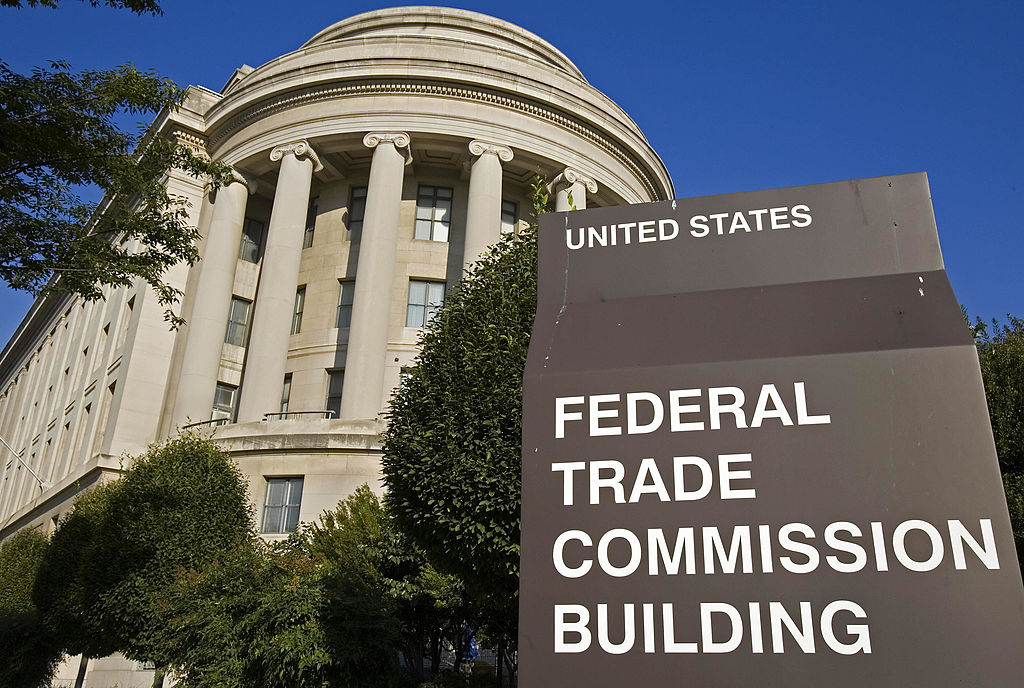FTC Signals Rules Targeting ‘Commercial Surveillance’
Chair Lina Khan points to issues with host of online data collection, monetization practices

The smarter way to stay on top of the multichannel video marketplace. Sign up below.
You are now subscribed
Your newsletter sign-up was successful
The Federal Trade Commission has signaled it could impose new rules on “commercial surveillance,” by which it means “the business of collecting, analyzing and profiting from information about people.”
Such rules have obvious implications for the targeted online advertising that undergirds the free content model.
The FTC Advance Notice of Proposed Rulemaking also is targeting "lax data security," another D.C. criticism of Big Tech.
The commission is seeking public input on "the harms stemming from commercial surveillance" and whether new rules are needed to protect privacy.
FTC chair Lina Khan is a long-time critic of Big Tech data collection and protection practices — or the lack of them — so there could be a thumb on the scale for new rules. “The growing digitization of our economy — coupled with business models that can incentivize endless hoovering up of sensitive user data and a vast expansion of how this data is used — means that potentially unlawful practices may be prevalent,” Khan said Thursday (Aug. 11).
While the FTC has traditionally been an enforcement agency, suing parties--or securing settlements — over false or deceptive conduct, there is a move, particularly among Democrats, to beef up its rulemaking authority.
The concerns the FTC is looking to address through its potential rulemaking include:
- "Lax Data Security: The immense volume of information that companies collect and use requires a commensurate level of data security to keep it safe. However, the FTC is concerned that many companies do not sufficiently or consistently invest in securing the data they collect from hackers and data thieves.
- "Harms to kids: Children of all ages are especially vulnerable to the deception and manipulation that can stem from commercial surveillance.
- "Retaliation: The FTC is concerned that many companies require people to sign up for surveillance as a condition for service.
- "Surveillance creep: Some companies reserve the right to change their privacy terms after consumers sign up for a product or service. Consumers who want to maintain access may have no choice but to accept those updated terms, even those that materially break previous privacy promises."
- "Inaccuracy: Very little is known about the automated systems and algorithms that analyze data."
- "Bias and discrimination: Some commercial surveillance practices may discriminate against consumers based on legally protected characteristics like race, gender, religion, and age.
- "Dark patterns: Companies increasingly employ dark patterns or marketing to influence or coerce consumers into choices they would otherwise not make, including purchases or sharing personal information."
The reaction on Capitol Hill to the news depended on which side of the aisle it came from.
Republicans have not been eager to give a regulator more power to regulate.
“To get real consumer data privacy protections, Congress must act," said Sen. Roger Wicker (R-Miss.), ranking member of the Senate Commerce Committee. "FTC commissioners have acknowledged legislation, not regulation, is the preferred way to achieve these protections.”
Wicker put in a pitch for the American Data Privacy and Protection Act — he is a co-sponsor — a bipartisan bill that Big Tech has been fighting against with a big-bucks ad campaign. "I hope today’s action by the FTC helps underscore the urgency for the House to bring the American Data Privacy and Protection Act to the floor and for the Senate Commerce Committee to advance it through committee," said Wicker.
On the other side of the aisle, Sen. Richard Blumenthal (D-Conn.), chair of Commerce's Consumer Protection Subcommittee, called the FTC move a “tremendous win” for consumers because it would “strengthen consumer privacy, bolster civil rights, and establish guardrails on the collection and use of consumers’ personal data … Big Tech’s exploitation of Americans’ private information, anti-competitive behavior, and data breaches have created a crisis that demands action,” he said.
"Despite a call for public input, it’s clear that the majority envisions big changes to the way entire industries do business online," said Lartease Tiffith, EVP for public policy at the Interactive Advertising Burea. "It’s not clear, however, whether Congress gave the FTC such broad power. What some are calling ‘commercial surveillance’ is the necessary exchange of information at the heart of the free and open internet, generating opportunities for creativity, community and commerce. Safely and securely, millions of Americans, including in the digital advertising industry, earn their livings with the responsible use of data. IAB research shows that severe restrictions could jeopardize over 17 million jobs and trillions of dollars of annual economic output. Small businesses increasingly reliant on data and digital advertising could be hardest hit."
Tiffith said IAB supported reasonable data protection policies, and said it was working with lawmakers on achieving that goal.
■
The smarter way to stay on top of the multichannel video marketplace. Sign up below.
Contributing editor John Eggerton has been an editor and/or writer on media regulation, legislation and policy for over four decades, including covering the FCC, FTC, Congress, the major media trade associations, and the federal courts. In addition to Multichannel News and Broadcasting + Cable, his work has appeared in Radio World, TV Technology, TV Fax, This Week in Consumer Electronics, Variety and the Encyclopedia Britannica.

